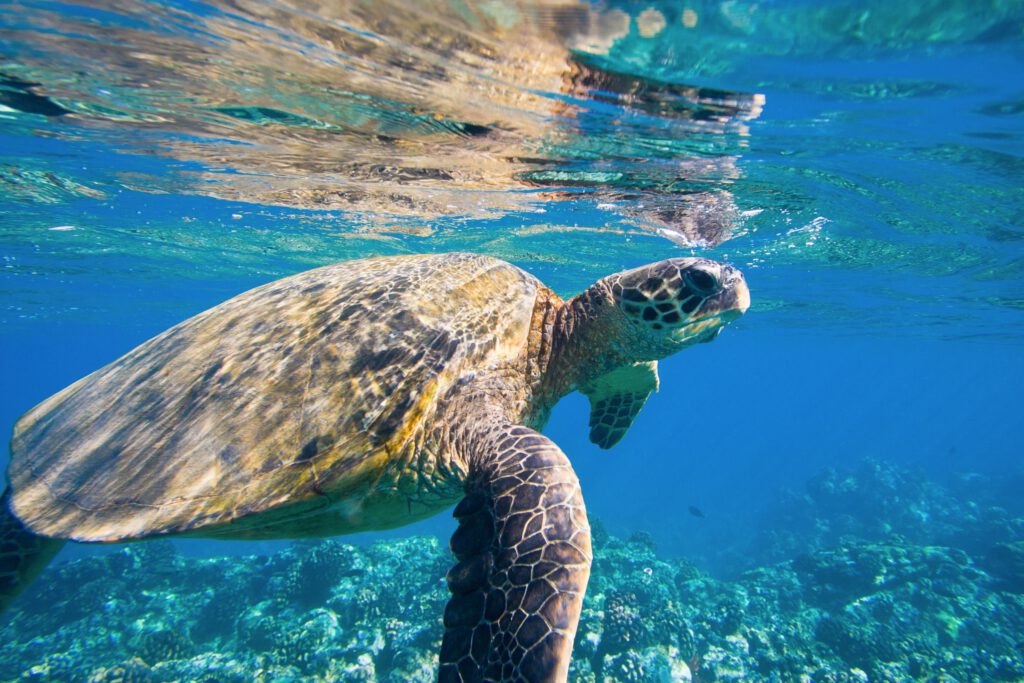Tuna, turtles and training

Stuart Gilby, a Senior Electrical Lecturer from Develop Training Limited (DTL) has recently spent four weeks among the Green Turtles and Yellow Fin Tuna of Ascension Island whilst delivering one of the company’s most unusual assignments.
DTL won the contract from Babcock Communications Limited to provide High Voltage (HV) training for operatives maintaining the HV network on the isolated volcanic island of Ascension in the South Atlantic.
No commercial flights run to and from the island
Commercial flights to the island are in short supply since the Airbridge was cancelled in April 2017 due to runway issues; this means that Stuart Gilby, HV Lecturer for Develop Training had to travel to and from the island with the RAF directly from their Brize Norton base in the UK.
The fun didn’t end there for Stuart as a day before he was due to leave the RAF cancelled the flight back to the UK, but Start eventually made it home 7 days late but with a whole host of memories from what must be the best training assignment ever!
Stuart delivered training on site for two weeks, but the trip had to be extended to three weeks to accommodate the RAF flights. During his time off Stuart tried his hand at tuna fishing with an island resident – a real once in a lifetime experience!
Stuart said “It’s definitely without doubt, the best training assignment I’ve been fortunate enough to deliver! Despite issues with leaving the island it was a fantastic experience, the staff I’ve trained were of a very high level and have a unique role to keep the communications and power systems maintained on the island” Stuart continued “It’s so remote but so beautiful I feel extremely privileged to have visited and worked with the team on Ascension Island, the memories of fishing for Yellow Fin Tuna and seeing the turtles will last a lifetime!”.
HV training for operatives maintaining the High Voltage network
Five wind turbines on Ascension Island help to sustainably power BBC World Service shortwave transmissions to Africa. The 53-metre-tall wind turbines were made by Enercon in Germany, who chartered a ship to deliver them, and can collectively deliver up to 1650kW on a windy day. Power from the wind farm goes directly into the island’s electricity grid, which uses between 1000kW and 3000kW depending on the time of day and the BBC transmitting schedule.
ASCENSION ISLAND FACT FILE
- Ascension Island is an isolated volcanic island, 7°56′ south of the Equator in the South Atlantic Ocean. It is about 1,600 kilometres (1,000 mi) from the coast of Africa and 2,250 kilometres (1,400 mi) from the coast of Brazil. In the February 2016 census, 806 people were recorded as living on the island.
- The island is named after the day of its recorded discovery, Ascension Day. It was an important safe haven and coaling station to mariners and for commercial airliners during the days of international air travel by flying boats. During World War 2 it was an important naval and air station, especially providing antisubmarine warfare bases in the Battle of the Atlantic.
- The island is also the location of RAF Ascension Island, which is a Royal Air Force station, a European Space Agency rocket tracking station, an Anglo-American signals intelligence facility and the BBC World Service Atlantic Relay Station.
- The largest native land animal is the land crab Johngarthia lagostoma (formerly Gecarcinus lagostoma). Offshore, there is a variety of open-ocean fish including sharks, wahoo, tuna, bonito, barracude, marlin, blackfish and sailfish. The protected green turtle is perhaps the most notable of the endemic fauna, coming ashore to lay their eggs on the beaches from November to May.
- In January 2016 the UK Government announced that an area around Ascension Island was to become a huge marine reserve, to protect its varied and unique ecosystem. It includes some of the largest marlin in the world, large populations of green turtle, and the island’s own species of frigate bird.












Responses